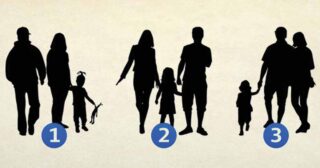12 Subtle Signs Someone Is Stalking You
Stalking can be difficult to detect because it often starts with subtle behaviors. However, recognizing early signs can help you take action to protect yourself. Here are 12 subtle signs that someone might be stalking you:
1. Unwanted and Excessive Contact
- What It Is: The person repeatedly calls, texts, or messages you, even after you’ve asked them to stop. They may try to justify their behavior as concern or friendliness.
- Why It’s a Warning: Excessive communication that ignores your boundaries is a red flag for stalking.
2. Unexpected Appearances in Multiple Locations
- What It Is: The person shows up unexpectedly in places you frequent, such as your workplace, gym, or favorite café, even though they have no legitimate reason to be there.
- Why It’s a Warning: Seeing someone in multiple unrelated locations suggests they are keeping track of your movements.
3. Monitoring Your Social Media
- What It Is: The person "likes," comments on, or responds to every post you make. They may also ask for details about your plans, whereabouts, or people you’re with.
- Why It’s a Warning: Over-engagement on social media, especially when combined with other behaviors, may indicate that they are monitoring you closely.
4. Sending Unwanted Gifts
- What It Is: You receive gifts from the person, even after you’ve asked them to stop or if you’re not close with them. They may justify the gifts as tokens of affection or admiration.
- Why It’s a Warning: Persistent gift-giving, especially when unwanted, can be a sign that the person is trying to maintain control or closeness with you.
5. Constantly “Bumping Into” You
- What It Is: The person frequently "coincidentally" runs into you in places you don’t normally expect to see them. They may claim it’s just a coincidence, but it happens too often to be random.
- Why It’s a Warning: If this occurs repeatedly, it may indicate that they’re deliberately following or tracking your whereabouts.
6. Asking for Detailed Information
- What It Is: The person asks you or people around you for detailed information about your schedule, relationships, or personal life.
- Why It’s a Warning: Attempting to gather personal details can be a tactic for keeping track of your activities.
7. Unexplained Damage or Items Around Your Home
- What It Is: You notice signs of tampering with your home, such as windows or doors being unlocked, or unfamiliar items left outside your property.
- Why It’s a Warning: Physical signs of someone accessing your property without permission can indicate that they’re watching or trying to invade your space.
8. Tracking Devices or Surveillance
- What It Is: The person may use tracking devices, such as GPS on your car, or install spyware on your phone or computer to monitor your location and activity.
- Why It’s a Warning: Surveillance, either through technology or physical monitoring, is a serious and invasive form of stalking.
9. Manipulative “Helping” Behavior
- What It Is: The person frequently offers help or shows up to assist you in situations where you didn’t ask for help, using it as an excuse to get closer to you.
- Why It’s a Warning: Offering unwanted assistance can be a way for the stalker to remain involved in your life and manipulate your response to them.
10. Refusing to Accept Rejection
- What It Is: The person continues to pursue you after you’ve clearly expressed disinterest or ended the relationship. They may try to justify their persistence as "not giving up."
- Why It’s a Warning: A refusal to accept boundaries or rejection is a common trait among stalkers.
11. Hacking Into Your Online Accounts
- What It Is: You notice unusual activity on your social media or email accounts, such as password changes, or the person has information that you didn’t share with them.
- Why It’s a Warning: Hacking into your personal accounts can be a way for the person to monitor or control you.
12. Displaying Obsessive or Possessive Behavior
- What It Is: The person shows signs of obsession, constantly wanting to know where you are, who you’re with, or what you’re doing. They may become jealous or angry when you’re around other people.
- Why It’s a Warning: Obsessive or possessive behavior can escalate into more invasive or dangerous actions.
What to Do If You Suspect Stalking
If you notice these behaviors, it’s important to trust your instincts and take action:
- Document: Keep records of any incidents, including dates, times, and descriptions of events.
- Set Boundaries: Make it clear that the behavior is unwanted, but avoid engaging too much with the person.
- Seek Help: Contact law enforcement if you feel threatened, and consider getting a restraining order if the behavior escalates.
- Protect Yourself: Increase your personal safety by changing routines, securing your home, and limiting what you share on social media.
Stalking is a serious issue, and addressing it early can prevent further harm. If you feel unsafe, don’t hesitate to reach out to professionals for help.










